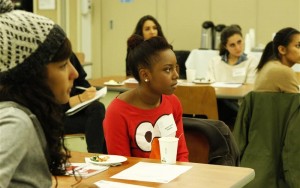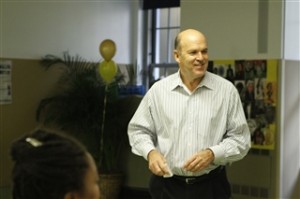21st Century Leadership
 What does it take to be a leader in the 21st Century?
What does it take to be a leader in the 21st Century?
I recently spoke to a group of HS students at a Student Leadership Conference convened by the Dalton School in Upper Manhattan. This was the question on the table. Here is my response: It will take something different, something more, than what got us here.
Beyond the unusual itemization of what it takes to be a leader (vision, communication skills, managing change, etc.), three specific competencies will differentiate tomorrow’s leaders:
- Embody Integrity: In the past having integrity largely meant being decisive and firm in one’s beliefs. But the global community which students of leadership today must embrace is full of diverse perspectives and abundant contradictions. There are no simple solutions to creating stability in the Middle East or solving “climate change,” for example. Aspiring leaders must have the capacity to hold extreme differences without jumping to quick answers or easy solutions. While decisiveness is sometimes essential for a leader, embracing ambiguity and the ability to re-frame and re-visit complex dilemmas is equally as important. To embody integrity, tomorrow’s leaders must have new visions of completeness and wholeness on a global scale.

- Manage Uncertainty: The paceof change in today’s world continues to accelerate exponentially. Moore’s Law applies to more than computer chips. The ability to plan for the future must be juxtaposed with the agility to deal with the unexpected. This is something more and something different than what has typically been referred to as “managing change.” Leaders are too easily tempted to assure some stable outcome, a defined end-state. In the 21st century, a readiness to admit that you don’t necessarily know whatthe future holds or what the specific outcome will be, paradoxically, encourages trust and generates loyalty.
- Invest in Social Capital: Knowing the difference between Connections and Relationships is essential for the 21st Century Leader. Vast and expanding social networks have long since replaced the limited rolodex and business card collections of the last century. Most Connections are largely transactional; but Relationships require mutual commitment, trust, and shared values. In a world of 500 million friends, tomorrow’s leaders must be capable of standing close with those whom they aspire to lead, knowing that their influence can be transmitted instantly to thousands but that sustainable leadership requires trustworthy Relationships.
 Embody a sense of integrity that embraces new expressions of “wholeness”. Manage uncertainty which is something more and different than believing there is a defined end-point. Invest in social capital, affirming the value of vital relationships in the midst of burgeoning connections. Aspiring young leaders will be better equipped for the 21st century by learning these leadership competencies.
Embody a sense of integrity that embraces new expressions of “wholeness”. Manage uncertainty which is something more and different than believing there is a defined end-point. Invest in social capital, affirming the value of vital relationships in the midst of burgeoning connections. Aspiring young leaders will be better equipped for the 21st century by learning these leadership competencies.
